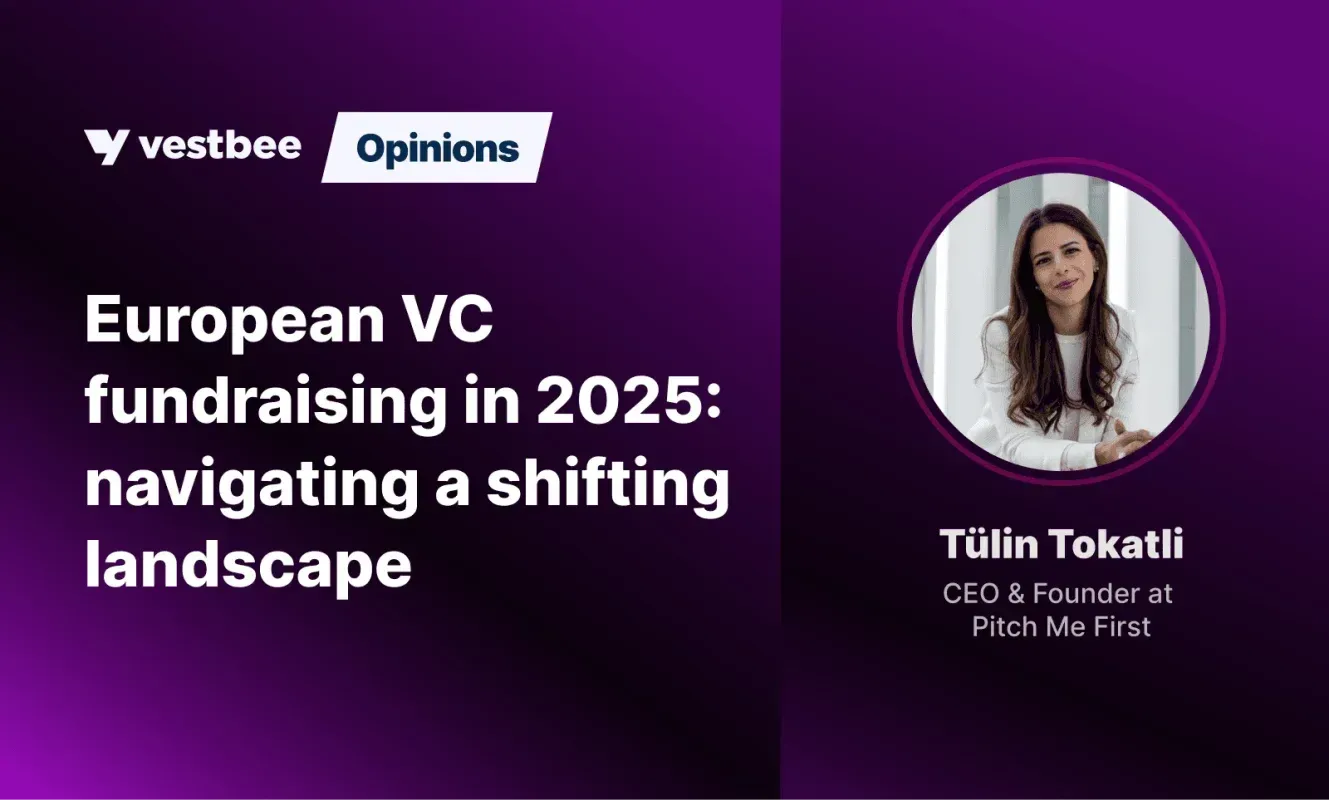5 Consequences of Not Embracing Diversity in your VC Team
Introduction
For the last 80 years venture capital investment has played a crucial role in shaping innovation and technology by determining which ideas make it to the market and shape the world.
VC is the innovation catalyst, driving startups to disrupt and innovate. Venture capital firms help startups grow by funding new and exciting ideas. They choose which innovations could change industries and invest in them to help them succeed. But to really understand and predict market trends, VC teams need people from different backgrounds and experiences.
Yet, there is a contradiction: Venture capital thrives on new ideas, yet many VC teams lack the diversity that drives innovation. Despite knowing the value of varied perspectives, these teams often mirror a narrower segment of society, limiting their potential to innovate and capture diverse market opportunities. This can hold back the fresh thinking they need.
VCs thrive on diversity—of thought, background, and experience, essential for innovation. However, many VC teams are homogenous, made up of a pack of individuals usually from similar backgrounds, experiences, ethnicities, language and even gender. They reflect past practices rather than future potential.
This is a significant oversight in our diverse world. The insights gleaned from the Holloway shed light on the essential qualities that venture capital firms look for in their team members.
Just looking at the numbers, the “nondiversity” issue is pretty prevalent in VC firms of the west:
- Only 3% of VC partners in the US are Black, and another 3% Hispanic or Latinx, with 14% of partners being women, significantly underrepresenting the actual picture in the general population.
- Similarly, in the UK, only 13% of venture capital partner roles are occupied by women and 83% of venture firms have no women in their decision-making bodies.
Ok, so these numbers clearly indicate a diversity gap. But what’s the actual big deal?
5 Consequences of Homogeneity within VC teams
In the venture capital world, who is on your team matters a lot. Teams that all think and look the same might miss out on big opportunities. Let’s explore five ways that not having enough diversity can hold back a VC team and why mixing things up can lead to better results.
1. Homogenous teams risk missing out on groundbreaking opportunities
Embracing diversity isn't just ethical; it's strategic, enabling VC firms to lead in identifying the next big innovation wave.In the competitive VC ecosystem, team diversity is crucial for identifying and nurturing transformative startups. It encourages a culture of debate and critical thinking, essential for spotting and supporting innovation. An intimate grasp of global markets, user needs, and societal trends is crucial for investing in the next best thing.
This is not just theory but it’s something that significantly determines the effectiveness of a VC firm.
Hindered by their narrow viewpoint, homogenous VC teams risk missing out on awesome deals, andmight undervalue or misunderstand groundbreaking ideas not immediately within their realm of experience.
2. Homogenous teams invest in homogenous startups
The lack of professional, ethnic, gender diversity in a VC team will likely impact the diversity of startups that receive its funding.
This "mirrortocracy" tends to fund entrepreneurs who resemble the investors themselves - which often tends to be (brace yourselves) white men from prestigious universities. This similarity bias restricts the variety of innovations entering the market, as ideas outside the familiar comfort zone of these investors might be overlooked or undervalued.
As a consequence, potentially revolutionary ideas that could appeal to a broader or different demographic might not get the necessary backing to develop and reach the market, limiting technological and economic progress.
This leads to our next point.
3. Lack of investment diversity perpetuates economic inequality
Yes, big statement, we know. But we’ll repeat it for effect:
A non-diverse VC sector contributes to widening economic disparities.
Since funding from VC funds is a critical gateway for startup success, lack of diversity among investors means that funding is more accessible to those who already have social and educational advantages.
For instance, the significant class bias within the UK where VC funding disproportionately goes to alumni of elite universities like Oxford, Cambridge, Harvard, or Stanford, perpetuates a cycle where wealth and opportunities remain concentrated within a narrow segment of society.
This concentration of capital not only prevents economic mobility for a larger range of socioeconomic groups, but also reinforces the systemic barriers faced by these underrepresented populations. It basically makes it harder for them to break into industries that are traditionally dominated by the “elite”.
4. Non diverse VC teams miss out on better financial performance
It’s no secret. Studies reveal that diverse VC teams (i.e. with more than one gender/ethnicity representative) perform better, bringing higher returns on investment.
Here are some figures:
- Ethnically diverse founding teams achieve 30% higher returns than all-white teams, and startups with female founders generate more revenue per dollar invested.
- Increased diversity within investment teams leads to better financial performance, with funds having more diverse partners experiencing higher success rates in acquisitions or IPOs and achieving, on average, 1.5% higher annual returns and 9.7% more profitable exits when they increase female partner representation by 10%.
Despite this data, the VC industry's risk aversion to diversifying their investment portfolios continues.
This reluctance not only impacts the financial performance of the funds but also limits the overall growth and innovation potential within the broader economy. By not leveraging the full spectrum of available talent and ideas, the industry fails to maximise its returns and contribute to a more dynamic market.
5. Non-diverse VC teams can miss out on substantial institutional funding
This one is more opportunistic, but valid nevertheless.
VC firms that overlook the importance of diversity also risk losing crucial funding from big LPs (think, DFIs) committed to promoting diversity.
This trend is highlighted by institutional investors like the EIF, which prioritise gender inclusion and ethnic diversity within the teams they back.
According to a detailed report produced by the EIF in collaboration with Invest Europe, there's a concerted push towards supporting VC teams that demonstrate a commitment to diversity. This shift reflects a broader movement within the investment community, where the value of diverse leadership is increasingly recognized.
As institutional investors adopt more policy-driven strategies, VC firms that fail to align with these diversity expectations may find themselves at a significant disadvantage when seeking essential funding, potentially sidelining them from pivotal investment opportunities that could drive their success and growth.
Verdict: Embrace Diversity
Today's intricate world needs solutions with universal appeal, addressing challenges that resonate on a global scale while impacting locally. Innovation hubs worldwide, from Bangalore to Tel Aviv and Lagos, are devising solutions infused with unique cultural and societal insights.
For the VC industry to truly champion technological advancement, it must embody the diversity it seeks to promote, incorporating varied backgrounds, thoughts and experiences.
Venture capital is at a pivotal junction: it can either evolve to mirror the diverse, changing world it aims to invest in or remain anchored in outdated practices and risk becoming redundant.
The future of VC lies in embracing a global mosaic of perspectives and experiences, a move not only ethical but strategically vital for leading the next innovation wave.
If you're looking to stand out in this complex, ever-evolving market, why go at it alone?
Introducing Pitch Me First:
Your go-to partner in scaling the formidable walls of institutional investment. We're not just any advisory firm. With a founding team that includes a former institutional LP, we bring a wealth of expertise straight to your strategy room. Our advisory services are tailor-made for European VC funds, especially those eyeing investments from heavyweight institutions like the European Investment Fund.
Book a 30 minute discovery call now to see how we can help you secure institutional money!
Share this!






